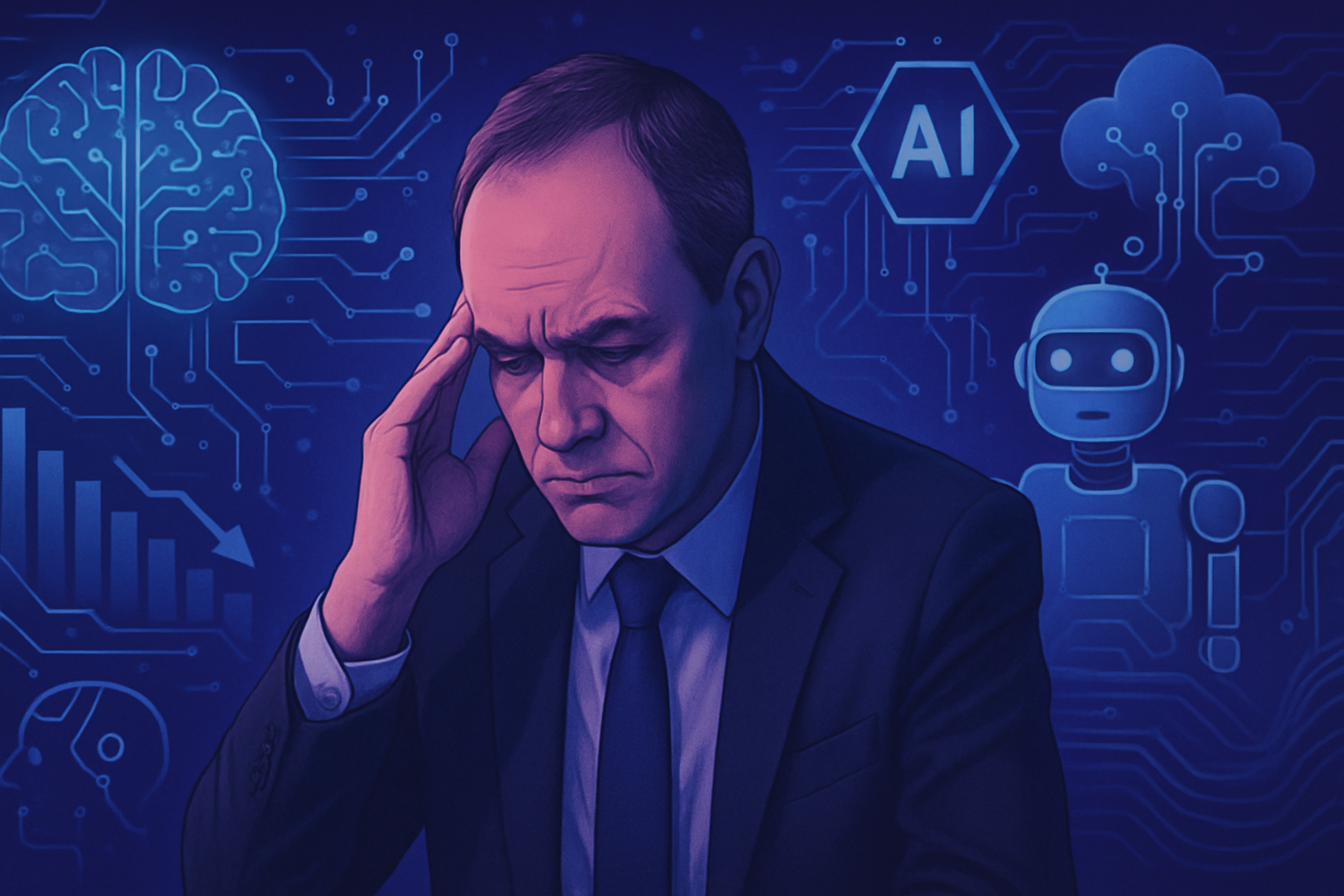The CEO of BT Group’s resounding statement highlights the deep industrial transition brought about by the rise of artificial intelligence. The announced reduction of 40,000 jobs illustrates the colossal repercussions on the labor market. This decision is set against a backdrop where technological innovation is redefining the required skills, raising concerns about the future of employees.
Announcement of massive job cuts at BT Group
The CEO of BT Group recently revealed the decision to cut up to 40,000 positions as part of a strategic adjustment in response to the imminent rise of artificial intelligence (AI). This announcement, published on June 13, 2025, follows concerns expressed about the repercussions of increasing automation on the labor market within the company.
Impact of artificial intelligence on employment
The accelerated development of AI technologies is leading to unprecedented changes across various sectors. BT Group, a major player in telecommunications, is witnessing a transformation of its operations, necessitating a significant reduction in workforce. According to the CEO, AI is expected to amplify these changes, challenging the traditional employment model within the company.
Market reactions
Stock markets reacted mixedly to BT’s announcement. While some indexes showed a slight uptick, analysts note that concerns persist regarding the long-term viability of the company. Fears are fueled by forecasts of uncertain financial results, direct consequences of this workforce reduction.
Economic and financial context
Meanwhile, BT operates in an economic environment where competition is intensifying. The company faces increased pressure related to its service offerings. The global telecommunications market is evolving rapidly, and companies must adjust to maintain their position. Analysts note that BT’s recent financial results, published on May 22, 2025, already indicate a downward trend in profits.
Strategic initiatives for the transition
BT Group is not limiting itself to workforce reductions to manage this transition. The company is investing in AI solutions to enhance customer experience and increase its revenues. By implementing chatbots and other automated tools, BT seeks to optimize its contact centers and reduce its operating costs over the long term.
Social consequences and union reactions
This announcement has raised growing concerns among unions, which worry about the social consequences of such a measure. Unions are calling for genuine discussions around the future of affected employees. They argue that management must consider retraining and support steps in light of this rapid technological evolution.
Overview of the international situation
The situation at BT is not unique. Other large companies are taking similar measures in response to the rise of AI. The proliferation of generative technologies comes with ethical and legal challenges, raising concerns about the future of many jobs in the sector. Regulatory bodies warn of the need for appropriate legislation to regulate the use of AI.
Future prospects for BT Group
BT Group must navigate a complex landscape in the future. Management seems aware of the challenges to balance innovation and employee well-being. Upcoming strategic decisions will consider not only economic issues but also the social impact of such transformations in a highly competitive environment.
Frequently asked questions
What is the reason for the cut of 40,000 jobs at BT Group?
The cut of 40,000 jobs at BT Group is primarily due to the rise of AI, which leads to increased automation of processes and a reduction in labor needs.
How does BT Group plan to support employees affected by these cuts?
BT Group has announced that they will implement professional reintegration and training programs to help employees find new job opportunities.
When will these job cuts be implemented?
The precise details regarding the timeline for job cuts have not yet been announced, but the process is expected to begin in the months following the announcement.
Which sectors of BT Group will be most affected by these workforce reductions?
While specific details have not been provided, departments related to automatable tasks, notably customer service and technical operations, are likely to be the most affected.
What impacts could these job cuts have on customer services?
BT Group is committed to maintaining a high level of customer service, but it is possible that wait times and service levels may temporarily vary during the transition.
How is the rise of AI transforming the telecommunications sector?
The rise of AI in the telecommunications sector allows for better data analysis, process automation, and improved customer experience, but it also leads to restructuring and job losses.
Is BT Group planning to hire in other sectors despite these reductions?
It has been mentioned that BT Group may consider hiring in areas related to technology and AI to support its digital transformation strategy.
What is the employees’ reaction to this announcement?
The employees’ reaction is generally one of concern and uncertainty regarding their professional future, as well as worries about the impact of these cuts on team morale.
What alternatives to automation is BT Group considering to remain competitive?
BT Group is exploring various alternatives, such as upskilling its employees and developing new services based on emerging technologies, to remain competitive while managing costs.






